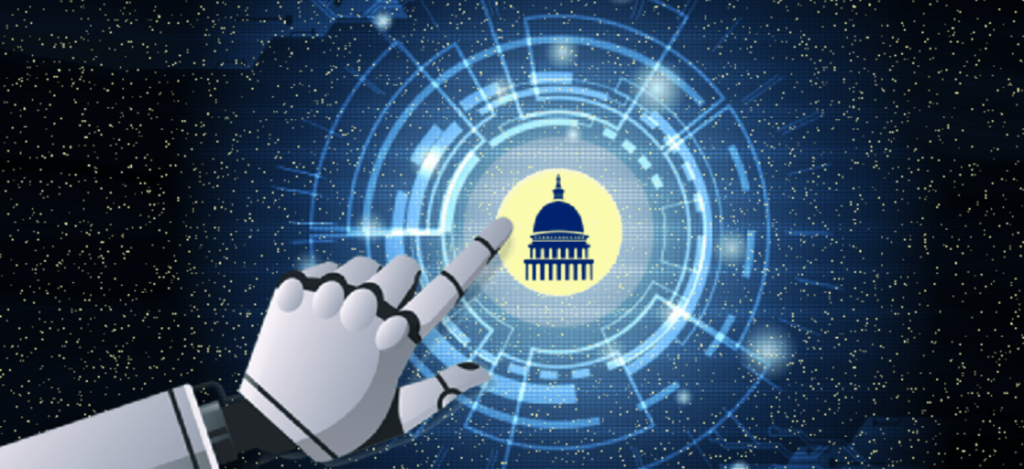
Will AI run politics and government functions in the future? I think there is a high likelihood of this, but it doesn't come without risks and things that could go wrong.
Artificial Intelligence (AI) is transforming every sector of society, and politics is no exception. AI has the potential to revolutionize the way we govern and make decisions, from improving election processes to enhancing public service delivery.
As AI continues to advance, it is likely that it will become increasingly integrated into the political sphere. In this article, we will explore the future of politics and AI, including the benefits and challenges of this integration.
Benefits of AI in Politics
Enhanced Decision-making
One of the most significant benefits of AI in politics is the potential to enhance decision-making processes. AI algorithms can analyze vast amounts of data, identifying patterns and predicting outcomes more accurately than humans.
This capability could help policymakers to make more informed decisions, particularly in complex areas such as healthcare, climate change, and security.

Improved Public Service Delivery
AI can also improve public service delivery, such as healthcare, education, and transportation. By analyzing data on citizen needs and behavior, AI can optimize service delivery, reducing wait times, and improving outcomes.
This capability could help governments to provide more effective services, leading to better outcomes for citizens.

Increased Efficiency and Cost Savings
Another potential benefit of AI in politics is increased efficiency and cost savings. AI can automate routine tasks, reducing the burden on human workers and freeing up resources for other activities.
This capability could lead to significant cost savings for governments, enabling them to provide better services or invest in other areas.

Challenges of AI in Politics
Bias and Discrimination
One of the most significant challenges of AI in politics is the risk of bias and discrimination. AI algorithms are only as unbiased as the data they are trained on. If the data is biased, then the algorithm will be biased too.
This bias could lead to discriminatory outcomes, particularly in areas such as criminal justice or immigration.
Lack of Transparency and Accountability
Another challenge of AI in politics is the lack of transparency and accountability. AI algorithms can be complex and opaque, making it challenging to understand how decisions are being made.
This lack of transparency could lead to mistrust and suspicion among citizens, particularly if the algorithm is making decisions that affect their lives.
Job Displacement
AI could also lead to job displacement in the political sphere. As AI automates routine tasks, it may replace human workers, particularly in administrative roles.
This displacement could lead to unemployment and social unrest, particularly if governments do not invest in retraining and reskilling programs.

The Future of Politics and AI
Despite the challenges of integrating AI into politics, the potential benefits are too significant to ignore. As such, it is likely that AI will become increasingly integrated into the political sphere in the coming years.
Here are some potential scenarios for the future of politics and AI.
AI-assisted Decision-making
One potential scenario is that AI will become increasingly integrated into the decision-making processes of governments. AI algorithms could analyze data on citizen behavior, economic indicators, and other relevant data points, providing policymakers with insights that they might not have been able to access otherwise.
This integration could lead to more informed decisions and better outcomes for citizens.
Increased Automation
Another potential scenario is that AI will lead to increased automation in the political sphere. AI could automate routine tasks such as data entry, document processing, and administrative tasks, reducing the burden on human workers.
This automation could lead to cost savings for governments and improved efficiency in service delivery.
Ethical AI
As AI becomes increasingly integrated into politics, it will be important to develop ethical frameworks for its use. Governments will need to ensure that AI is being used in a way that is fair, transparent, and accountable.
This framework could include regulations around the collection and use of data, as well as guidelines for the development and deployment of AI algorithms.

Conclusion
AI is transforming politics and governance in significant ways. AI has the potential to improve political campaigns, assist in decision-making, transform governance, and enhance democracy. However, the use of AI also raises ethical, legal, and social questions that must be addressed.
Policymakers, technologists, and citizens must work together to ensure that AI is used ethically, transparently, and in a way that benefits society as a whole. By doing so, we can harness the power of AI to build a better future for humanity.
Do you think AI will run government and politics in the future?
Online writer since 2008. I enjoy writing and have written nearly a thousand tech related articles about electric vehicles, software, tech companies, hardware, gaming, tech related products, and company developments in tech.
